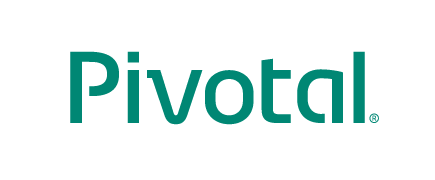
FedInsights by Pivotal
Why software must be seen as a strategic asset
Keith Salisbury, the senior director of federal sales for Pivotal, said leadership is key to build software at startup speed.
Keith Salisbury, the senior director of federal sales for Pivotal, said leadership is key to build software at startup speed.
Over the last four or five years, agencies have fallen in love with the start-up culture.
Starting with the U.S. Digital Service at the White House and the General Services Administration’s 18F organization, agencies have been trying to change their approach to buying and developing technology.
The departments of Defense, Homeland Security, Veterans Affairs and many others have set up digital services offices, and even a few established offices on the West Coast to tap into the vibe.
USDS even developed a digital services playbook, detailing 13 steps to improve citizen services. These range from using agile and iterative practices to using data to drive decisions to deploying a flexible hosting environment.
Former Social Security Administration chief information officer Rob Klopp wrote in a July 2016 blog post that agencies need to think about modern software so it’s architected to run over a stack that can be distributed across a cluster of servers. He said it is designed so that each layer of the stack and so that every business application can be distributed and deployed and scaled across a cluster of servers.
SSA is one of those agencies that has had success in moving to this modern approach to software. But most other agencies remain in the beginning stages.
So what will it take to transform how agencies build modern software?
Keith Salisbury, the senior director of federal sales for Pivotal, said agencies need to look at software as a strategic asset.
“The Fortune 500 have spoken. They clearly have realized if they are not just as good at building software as a Silicon Valley startup they are going out of business. The ability to build great software at startup speed is absolutely a strategic asset for the organization,” said Salisbury. “Leaders in government agencies need to make that decision. If the answer is ‘yes,’ and I absolutely believe it is, then you need to be honest with yourself. There is only one metric that matters, cycle time—your agency’s ability to go from ‘I’ve got an idea’ to the time that idea is working software in production, touching an end user and being used to enable your mission with the constituent or the warfighter. Cycle time is what you have to measure. If that is not in days or weeks, then you are not moving in startup speed.”
Salisbury said Pivotal has worked with several agencies which have made such a decision and the return is almost immediate.
For example, the Air Force’s central command used this agile or iterative approach to develop software for command and control for logistics around air operations.
“In solving some of those problems, it was literally taking years to manifest themselves into software solutions,” he said. “The previous Secretary of Defense Ash Carter took one of those problems and handed it to his Silicon Valley outpost, Defense Innovation Unit Experimental (DIUx), and said, ‘hey, try something new here. See if there is a different way, a different method that would produce a different outcome on a different timeline.’ We were able to work in partnership with them and we produced a complete mission application from scratch, nothing but an idea to working software that was running halfway around the world on classified networks, supporting the warfighter for that given mission areas. And we did it in less than 120 days.”
Salisbury said the airmen then started to provide feedback to Pivotal, DIUx and the Air Force and that now becomes new features. He said the service releases about 20 new capabilities every week.
“That is the Air Force moving at startup speed,” he said. “Prior to that, it was literally years before new software capability would reach the hands of the warfighter. Now it’s happening 20 times a week. That’s a powerful transformation. I think they have seen in real time that it is possible and the modernization and mission outcomes are powerful when you get it right.”
Salisbury said this Air Force example proves agencies can make the jump to startup speed even with all the obstacles ranging from procurement to budget to security that tend to stand in their way.
“If software is a strategic asset. If software is how your agency will deliver on your mission effectively in this modern era, that has to change. We’ve seen several leaders step and drive change to allow their agency to be able to do it,” he said. “The work we do with government agencies is the exact same way we work with startups in Silicon Valley and the exact same way we work with Fortune 50 enterprises. We are not teaching a government light version of software development. The government can do it. It just requires leadership to be forward thinking and work to get a lot of the policies and obstacles out of the way.”
Founded in 2013, Pivotal is a four-year old enterprise software startup that is transforming businesses worldwide. Pivotal’s cloud-native platform drives software innovation for many of the world’s most admired brands. With millions of developers in communities around the world, Pivotal technology touches billions of users every day. After shaping the software development culture of Silicon Valley’s most valuable companies for over a decade, today Pivotal leads a global technology movement transforming how the world builds software.
Resource Center
Host
 Jason Miller
Jason Miller
Jason Miller is a reporter whose work focuses mainly on technology and procurement issues, including cybersecurity, e-government and acquisition policies and programs.
Guest
 Keith Salisbury, Senior Director, U.S. Federal Sales, Pivotal
Keith Salisbury, Senior Director, U.S. Federal Sales, Pivotal
Keith Salisbury is responsible for US Federal Sales at Pivotal, a company unleashing the Silicon Valley “state of mind” on enterprises with decades of ‘industry specific’ know-how to transform the way they build software. Pivotal offers an open cloud platform optimized for building, deploying, and operating modern software.
We bring a sophisticated approach to User-Centered Design, we apply Lean Start-Up to software development, we practice a highly disciplined approach to Extreme Programming (XP), all of which is underpinned by the right platform strategy, Pivotal Cloud Foundry. Pivotal is pioneering a vision for how enterprises build and run modern applications in the cloud. Whether on-premise or off-premise or with any cloud provider, Pivotal Cloud Foundry® enables “cloud” to be about “how” you do things, not “where” you do things. Click here for more on Keith Salisbury.
Copyright © 2025 Federal News Network. All rights reserved. This website is not intended for users located within the European Economic Area.
Related Stories






